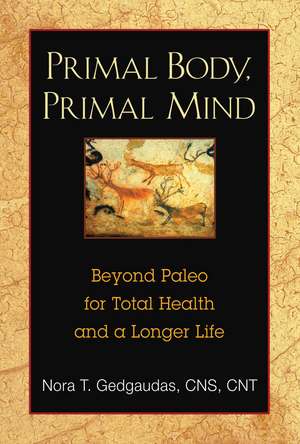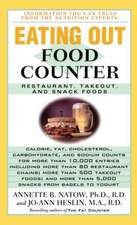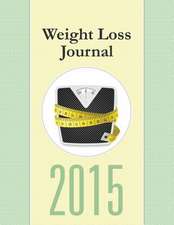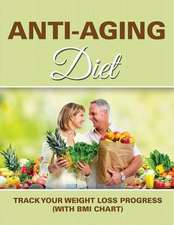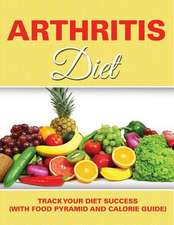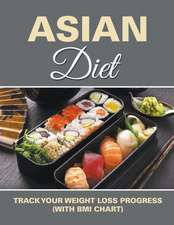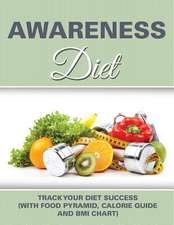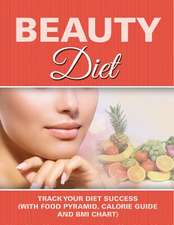Primal Body, Primal Mind: Beyond Paleo for Total Health and a Longer Life
Autor Nora Gedgaudas CNS, NTP, BCHNen Limba Engleză Paperback – 26 mai 2011
Preț: 119.07 lei
Nou
Puncte Express: 179
Preț estimativ în valută:
22.79€ • 24.60$ • 19.11£
22.79€ • 24.60$ • 19.11£
Carte disponibilă
Livrare economică 29 martie-12 aprilie
Livrare express 15-21 martie pentru 37.62 lei
Preluare comenzi: 021 569.72.76
Specificații
ISBN-13: 9781594774133
ISBN-10: 1594774137
Pagini: 416
Ilustrații: 28 b&w illustrations
Dimensiuni: 152 x 229 x 25 mm
Greutate: 0.67 kg
Ediția:2nd Edition, New Edition
Editura: Inner Traditions/Bear & Company
Colecția Healing Arts Press
ISBN-10: 1594774137
Pagini: 416
Ilustrații: 28 b&w illustrations
Dimensiuni: 152 x 229 x 25 mm
Greutate: 0.67 kg
Ediția:2nd Edition, New Edition
Editura: Inner Traditions/Bear & Company
Colecția Healing Arts Press
Notă biografică
Nora T. Gedgaudas, CNS, CNT, is a certified nutritional therapist and neurofeedback specialist with a private practice. A member of the Nutritional Therapy Association, the National Association of Nutritional Professionals, the Nutrition and Metabolism Society, and the Weston A. Price Foundation, she lives in Portland, Oregon.
Extras
Chapter 25
Our Primordial Past
Understanding Mother Nature’s Plan and Where We Fit In
What Do All the Longest-living Individuals Have in Common?
“If there is a known single marker for long life, as found in the centenarian and animal studies, it is low insulin levels.”
--Ron Rosedale, M.D., 1998
Research across the board has shown that long-lived individuals (animals and humans) share the following characteristics:
Low fasting insulin levels
Low fasting glucose
Optimally low leptin
Low triglycerides
Low percentage of visceral body fat
Lower body temperature
One single longevity marker stands out among all long-lived animals and persons above the rest, however, and that’s low insulin levels.
In July of 2009 the eagerly awaited results of a twenty-year study on the effects of caloric restriction on primates were finally published in the journal Science. Two groups of Rhesus monkeys (selected for their strong similarity to us) were studied: one group of monkeys was allowed to eat as much as they wanted, and the other group was given a sufficiently nutrient-dense diet with 30 percent fewer calories than they would normally consume. Twenty years later only 63 percent of the monkeys that ate as much as they wanted were still alive. Thirty-seven percent of them had died due to age-related causes. And the caloric restriction group? Eighty-seven percent were still alive and only 13 percent had died of age-related causes. Throughout their lives the calorically restricted group maintained superior health and aging-related biomarkers in every area: brain health, metabolic health and rate, insulin sensitivity, and cardiovascular vitality. The caloric restriction group enjoyed a threefold reduction in age-related disease! Also, they lost fat weight but maintained healthy levels of lean tissue mass. They also retained greater brain volume, which normally shrinks with age and glycation, but more than that they retained superior cognitive function. The cardiovascular disease rate of the caloric-restricted group was fully half the rate of the control group. Forty percent of the control group developed diabetes (or pre-diabetes). Not ONE single monkey in the calorically restricted group developed either. Remarkable. The available photos from the study showing examples of age-matched individuals from the two groups, which I was not able to include here, are visually striking. Stunning, even. The caloric-restricted monkeys looked almost literally half the age of the controls.
Among the most common misconceptions about monkeys and apes, incidentally, is that they are vegan animals. Though they are better adapted to making use of plant foods in some ways than we are, they also readily eat the same things we eat. ALL monkeys and apes are known to eat meat, and many even hunt for meat. The one notable exception is the mountain gorilla, and even they get some insects in their diet. Monkeys and apes are omnivores and, like us, will eat whatever might be available to them in their environment. Some even catch and eat fish! One of the reasons Rhesus monkeys were selected for this particular study, in fact, is because of their pronounced similarity to us, even in terms of diet.
There are actually several more recent studies showing significant health benefit where caloric restriction in humans is concerned. A newly released study in the Journal of Applied Research, “Clinical Experience of a Diet Designed to Reduce Aging” demonstrated that, in the context of an outpatient medical clinic, a diet high in fat (unlimited quantity), adequate in protein (50-80 grams per day), and very low in carbohydrate, with some added multivitamin and mineral supplementation, led to significant improvement in recognized serum factors related to the aging process. Patients were told to eat when they were hungry. The results also included a significant loss of body weight, a significant reduction in systolic and diastolic blood pressure, and a reduction in levels of leptin, insulin, fasting glucose, and free T3. Despite the predominance of fat in the diet, serum triglycerides were also greatly reduced.
Of course, it’s easy to restrict overall calories with lab animals, as they have no choice in the matter. It is quite another matter to try and restrict overall caloric intake when you’re driving past fifteen fast food joints on your way home, are surrounded by constant advertisement, and have a refrigerator and cupboards full of food at your ravenous fingertips. Unless, of course, you apply the caloric restriction model in a way that does not leave you hungry--which is exactly what this book tells you how to do. Just follow the simple, most basic dietary guidelines outlined here to eat optimally well while feeling fully satisfied and living healthier, longer--and even save some real money along the way! Even while buying the best-quality grass-fed meats, produce, and wild-caught fish you can find yourself saving considerable money on groceries. The basic guideline to remember is this: greatly restrict or eliminate sugar and starch (preferably eliminating gluten completely), keep your protein intake adequate amounting to approximately 6-7 ounces of organic grass-fed and/or wild-caught meat or seafood total per day, eat as many fibrous “above ground,” nonstarchy vegetables and greens as you like, and eat as much fat (from fattier cuts of meat or fish, nuts, seeds, avocados, coconut, butter/ghee, olives, olive oil, and the like) as you need to satisfy your appetite. The bottom line here is that natural dietary fat is not at all our enemy and that, in the absence of dietary carbohydrate and with adequate protein, it can result in a far more satisfying, longer, and healthier life overall. Simple, delicious, and satisfying. No hunger or feelings of deprivation needed, and all the benefits of supporting a longer and healthier life while saving you money. It’s better for the planet, too.
Our Primordial Past
Understanding Mother Nature’s Plan and Where We Fit In
What Do All the Longest-living Individuals Have in Common?
“If there is a known single marker for long life, as found in the centenarian and animal studies, it is low insulin levels.”
--Ron Rosedale, M.D., 1998
Research across the board has shown that long-lived individuals (animals and humans) share the following characteristics:
Low fasting insulin levels
Low fasting glucose
Optimally low leptin
Low triglycerides
Low percentage of visceral body fat
Lower body temperature
One single longevity marker stands out among all long-lived animals and persons above the rest, however, and that’s low insulin levels.
In July of 2009 the eagerly awaited results of a twenty-year study on the effects of caloric restriction on primates were finally published in the journal Science. Two groups of Rhesus monkeys (selected for their strong similarity to us) were studied: one group of monkeys was allowed to eat as much as they wanted, and the other group was given a sufficiently nutrient-dense diet with 30 percent fewer calories than they would normally consume. Twenty years later only 63 percent of the monkeys that ate as much as they wanted were still alive. Thirty-seven percent of them had died due to age-related causes. And the caloric restriction group? Eighty-seven percent were still alive and only 13 percent had died of age-related causes. Throughout their lives the calorically restricted group maintained superior health and aging-related biomarkers in every area: brain health, metabolic health and rate, insulin sensitivity, and cardiovascular vitality. The caloric restriction group enjoyed a threefold reduction in age-related disease! Also, they lost fat weight but maintained healthy levels of lean tissue mass. They also retained greater brain volume, which normally shrinks with age and glycation, but more than that they retained superior cognitive function. The cardiovascular disease rate of the caloric-restricted group was fully half the rate of the control group. Forty percent of the control group developed diabetes (or pre-diabetes). Not ONE single monkey in the calorically restricted group developed either. Remarkable. The available photos from the study showing examples of age-matched individuals from the two groups, which I was not able to include here, are visually striking. Stunning, even. The caloric-restricted monkeys looked almost literally half the age of the controls.
Among the most common misconceptions about monkeys and apes, incidentally, is that they are vegan animals. Though they are better adapted to making use of plant foods in some ways than we are, they also readily eat the same things we eat. ALL monkeys and apes are known to eat meat, and many even hunt for meat. The one notable exception is the mountain gorilla, and even they get some insects in their diet. Monkeys and apes are omnivores and, like us, will eat whatever might be available to them in their environment. Some even catch and eat fish! One of the reasons Rhesus monkeys were selected for this particular study, in fact, is because of their pronounced similarity to us, even in terms of diet.
There are actually several more recent studies showing significant health benefit where caloric restriction in humans is concerned. A newly released study in the Journal of Applied Research, “Clinical Experience of a Diet Designed to Reduce Aging” demonstrated that, in the context of an outpatient medical clinic, a diet high in fat (unlimited quantity), adequate in protein (50-80 grams per day), and very low in carbohydrate, with some added multivitamin and mineral supplementation, led to significant improvement in recognized serum factors related to the aging process. Patients were told to eat when they were hungry. The results also included a significant loss of body weight, a significant reduction in systolic and diastolic blood pressure, and a reduction in levels of leptin, insulin, fasting glucose, and free T3. Despite the predominance of fat in the diet, serum triglycerides were also greatly reduced.
Of course, it’s easy to restrict overall calories with lab animals, as they have no choice in the matter. It is quite another matter to try and restrict overall caloric intake when you’re driving past fifteen fast food joints on your way home, are surrounded by constant advertisement, and have a refrigerator and cupboards full of food at your ravenous fingertips. Unless, of course, you apply the caloric restriction model in a way that does not leave you hungry--which is exactly what this book tells you how to do. Just follow the simple, most basic dietary guidelines outlined here to eat optimally well while feeling fully satisfied and living healthier, longer--and even save some real money along the way! Even while buying the best-quality grass-fed meats, produce, and wild-caught fish you can find yourself saving considerable money on groceries. The basic guideline to remember is this: greatly restrict or eliminate sugar and starch (preferably eliminating gluten completely), keep your protein intake adequate amounting to approximately 6-7 ounces of organic grass-fed and/or wild-caught meat or seafood total per day, eat as many fibrous “above ground,” nonstarchy vegetables and greens as you like, and eat as much fat (from fattier cuts of meat or fish, nuts, seeds, avocados, coconut, butter/ghee, olives, olive oil, and the like) as you need to satisfy your appetite. The bottom line here is that natural dietary fat is not at all our enemy and that, in the absence of dietary carbohydrate and with adequate protein, it can result in a far more satisfying, longer, and healthier life overall. Simple, delicious, and satisfying. No hunger or feelings of deprivation needed, and all the benefits of supporting a longer and healthier life while saving you money. It’s better for the planet, too.
Cuprins
Illustration Permissions
Foreword by Mark Steinberg, Ph.D.
Foreword by Brent Pottenger
Preface
Introduction
Part One
Primal Body
1 A Look at Where Our Dietary Requirements Originated
2 So, What’s for Dinner?
3 Grains: Are They Really a Health Food?
4 So What about Soy?
5 Digestion and Nutrient Assimilation: A North-to-South Journey
6 Your Gut and the Immune Connection
7 Dietary Fats: The Good, the Bad, and the Ugly
8 Dispelling the Cholesterol Myth
9 Vitamin D: What All da Buzz Is About
10 Making the Omega-3 Fatty Acids Connection
11 The Tyranny of Trans Fats
12 So, How Much Natural Fat Do I Need, Anyway?
13 Carbohydrate Metabolism
14 Leptin: The Lord and Master of Your Hormonal Kingdom
15 Weight Management 101 and the Path to Type 2 Diabetes
16 Taming the Carb-craving Monster
17 High Fructose Corn Syrup: A Sticky Wicket Best Avoided
18 What about Fiber as an Essential Carbohydrate?
19 Adrenal Exhaustion: A Uniquely Modern Epidemic
20 A Word about Water
21 Understanding the Role of Protein
22 Our Primordial Past: Understanding Mother Nature’s Plan and Where We Fit In
23 Using Insulin and Leptin to Our Advantage
Part Two
Primal Mind
24 Feeding Your Brain: Why It Matters
25 How Important Is Fat to the Brain?
26 Where Does ADD/ADHD Fit In to All of This?
27 Relief from Anxiety and Depression in Our Uncertain World
28 What about Food Allergies and Sensitivities?
29 The Impact of Modern Dietary and Environmental Stress on the Brain
Part Three
Paradise Lost
30 Surviving in a Modern World
31 What Generation of Pottenger’s Cat Are You?
Appendix A Where to Start?
Appendix B Sample Menus
Appendix C Protein Content in Foods
Appendix D An Abbreviated Guide to Supplementation
Appendix E The Weston A. Price Foundation
Appendix F Pyroluria
Appendix G Paleo/Traditional Diet Resources and Related Websites
Appendix H Recommended Reading
References
About the Author
Index
Recenzii
“Primal Body, Primal Mind is the best nutritional book I have ever read. It covers everything. I have already bought 3 copies to give to worthy friends. A gold mine of great information.”
“Nora Gedgaudas is a warrior fighting for our collective health. For 2.6 million years humans knew what to eat: animal fat and protein. On that diet, we grew tall, strong, and disease-free. That primal pattern is still there, laid down like a labyrinth circling out of our DNA, and Nora is ready to guide us. This book is fabulous.”
“These days, hormones are a hot topic. In Primal Body, Primal Mind, Gedgaudas focuses on those hormones that are commonly imbalanced and problematic to the American population, contributing to symptoms such as weight gain, low energy, poor mood, and even premature aging. In clear and simple terms Nora describes the root of these problems and outlines solutions that are effective and easy to apply. This is the book you want to read.”
“Nora Gedgaudas lights a path toward dietary discretion and natural health that obliterates much of the standard dietary doctrine along the way. Larger truths have a tendency to be simple. It is so here as well.”
“It’s a health plan so easy even an unga bunga caveman can do it! Gedgaudas uses humor, science-based facts, and common sense to debunk many of the myths we have been told about weight and health control in the 21st century. In the world of healthy high-fat, low-carb nutrition research and education, this is yet another book to complement your healthy lifestyle change.”
“One of the best books I have read dealing with nutrition and lifestyle for optimal health.”
“Every so often, you encounter a gem among the dross competing for your attention. Such is the case with Primal Body, Primal Mind, written by Nora Gedgaudas.”
“In my opinion, Primal Body, Primal Mind is the best book so far ever done on the Paleolithic diet. Despite the rich and detailed amount of science included in Nora Gedgaudas’s excellent book, even Britney Spears could understand it.”
“Nora Gedgaudas has loaded Primal Body, Primal Mind with the information and resources essential for anyone who hopes to survive the 21st century in mental and physical health.”
“When you read Nora’s work, rest assured you are not reading a regurgitated version of whatever is in fashion, but instead the careful harvest of decades of careful research, application and observation .”
“. . . Primal Body, Primal Mind reveals how the coming of agriculture resulted in a marked decline in stature, bone density, dental health, with a corresponding rise in birth defects, malnutrition, and disease directly related to an agriculturally-based life style. . . Primal Body Primal Mind is an enthusiastically recommended addition to personal, academic, and community library Health & Nutrition instructional reference collections.”
“If you are serious about changing your eating habits to a healthier regimen, you should consider reading Primal Body, Primal Mind. Following Gedgaudas’ suggestions will not only give you a healthier body but also a clearer and more functional mind.”
“. . . it is splendid and solid . . .”
“In addition to addressing large health issues with clarity and precision, Gedgaudas provides step-by-step guidelines and meal recommendations, giving her work even more utility, while tossing in moments of humor for good measure.”
“This book provides a range of new information. It is an excellent resource for those of us who believe in the importance of grass fed animal fats as a crucial source of Omega-3.”
“If you want to really know about how your brain and body work, read this book!”
“This is one of the best health information books I have read in a long time.”
“A fascinating read that not only motivates you to change your diet but also provides the practical tools to do so.”
“Primal Body, Primal Mind is so much more than just another “what to eat” book – it explains in everyday terms why eating like our Paleolithic ancestors works. With ample research to back up her claims, certified nutritional therapist Nora Gedgaudas reveals what we are and are not genetically programmed to eat.”
“I consider Nora’s work to be the definitive statement on the nutritional needs of the brain. It is required reading for all of my patients and for anyone with an interest in maintaining their own vitality throughout their life.”
“Nora explores where our dietary requirements originated and how they affect our mood and vulnerability to diseases and explains the complex issues of nutrient assimilation, digestion gluten sensitivity, and celiac disease. Find out if you’re a fat burner or a sugar burner, learn the bad news about gluten, soy, milk proteins, and the nutritional bases for depression, ADHD, and other common disorders. This book is so much more than another ‘what to eat’ book.”
“Nora Gedgaudas is a warrior fighting for our collective health. For 2.6 million years humans knew what to eat: animal fat and protein. On that diet, we grew tall, strong, and disease-free. That primal pattern is still there, laid down like a labyrinth circling out of our DNA, and Nora is ready to guide us. This book is fabulous.”
“These days, hormones are a hot topic. In Primal Body, Primal Mind, Gedgaudas focuses on those hormones that are commonly imbalanced and problematic to the American population, contributing to symptoms such as weight gain, low energy, poor mood, and even premature aging. In clear and simple terms Nora describes the root of these problems and outlines solutions that are effective and easy to apply. This is the book you want to read.”
“Nora Gedgaudas lights a path toward dietary discretion and natural health that obliterates much of the standard dietary doctrine along the way. Larger truths have a tendency to be simple. It is so here as well.”
“It’s a health plan so easy even an unga bunga caveman can do it! Gedgaudas uses humor, science-based facts, and common sense to debunk many of the myths we have been told about weight and health control in the 21st century. In the world of healthy high-fat, low-carb nutrition research and education, this is yet another book to complement your healthy lifestyle change.”
“One of the best books I have read dealing with nutrition and lifestyle for optimal health.”
“Every so often, you encounter a gem among the dross competing for your attention. Such is the case with Primal Body, Primal Mind, written by Nora Gedgaudas.”
“In my opinion, Primal Body, Primal Mind is the best book so far ever done on the Paleolithic diet. Despite the rich and detailed amount of science included in Nora Gedgaudas’s excellent book, even Britney Spears could understand it.”
“Nora Gedgaudas has loaded Primal Body, Primal Mind with the information and resources essential for anyone who hopes to survive the 21st century in mental and physical health.”
“When you read Nora’s work, rest assured you are not reading a regurgitated version of whatever is in fashion, but instead the careful harvest of decades of careful research, application and observation .”
“. . . Primal Body, Primal Mind reveals how the coming of agriculture resulted in a marked decline in stature, bone density, dental health, with a corresponding rise in birth defects, malnutrition, and disease directly related to an agriculturally-based life style. . . Primal Body Primal Mind is an enthusiastically recommended addition to personal, academic, and community library Health & Nutrition instructional reference collections.”
“If you are serious about changing your eating habits to a healthier regimen, you should consider reading Primal Body, Primal Mind. Following Gedgaudas’ suggestions will not only give you a healthier body but also a clearer and more functional mind.”
“. . . it is splendid and solid . . .”
“In addition to addressing large health issues with clarity and precision, Gedgaudas provides step-by-step guidelines and meal recommendations, giving her work even more utility, while tossing in moments of humor for good measure.”
“This book provides a range of new information. It is an excellent resource for those of us who believe in the importance of grass fed animal fats as a crucial source of Omega-3.”
“If you want to really know about how your brain and body work, read this book!”
“This is one of the best health information books I have read in a long time.”
“A fascinating read that not only motivates you to change your diet but also provides the practical tools to do so.”
“Primal Body, Primal Mind is so much more than just another “what to eat” book – it explains in everyday terms why eating like our Paleolithic ancestors works. With ample research to back up her claims, certified nutritional therapist Nora Gedgaudas reveals what we are and are not genetically programmed to eat.”
“I consider Nora’s work to be the definitive statement on the nutritional needs of the brain. It is required reading for all of my patients and for anyone with an interest in maintaining their own vitality throughout their life.”
“Nora explores where our dietary requirements originated and how they affect our mood and vulnerability to diseases and explains the complex issues of nutrient assimilation, digestion gluten sensitivity, and celiac disease. Find out if you’re a fat burner or a sugar burner, learn the bad news about gluten, soy, milk proteins, and the nutritional bases for depression, ADHD, and other common disorders. This book is so much more than another ‘what to eat’ book.”
Descriere
Combining your body’s Paleolithic needs with modern nutritional and medical research for complete mind-body wellness.
